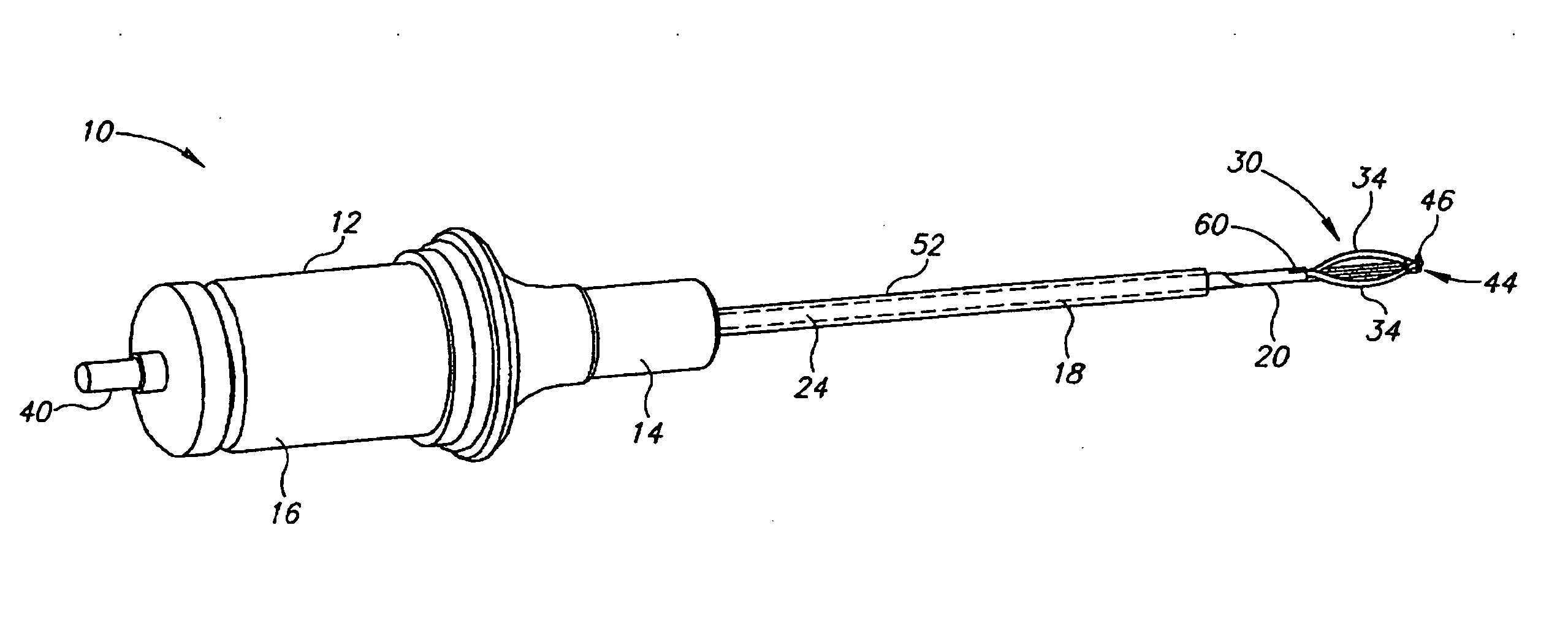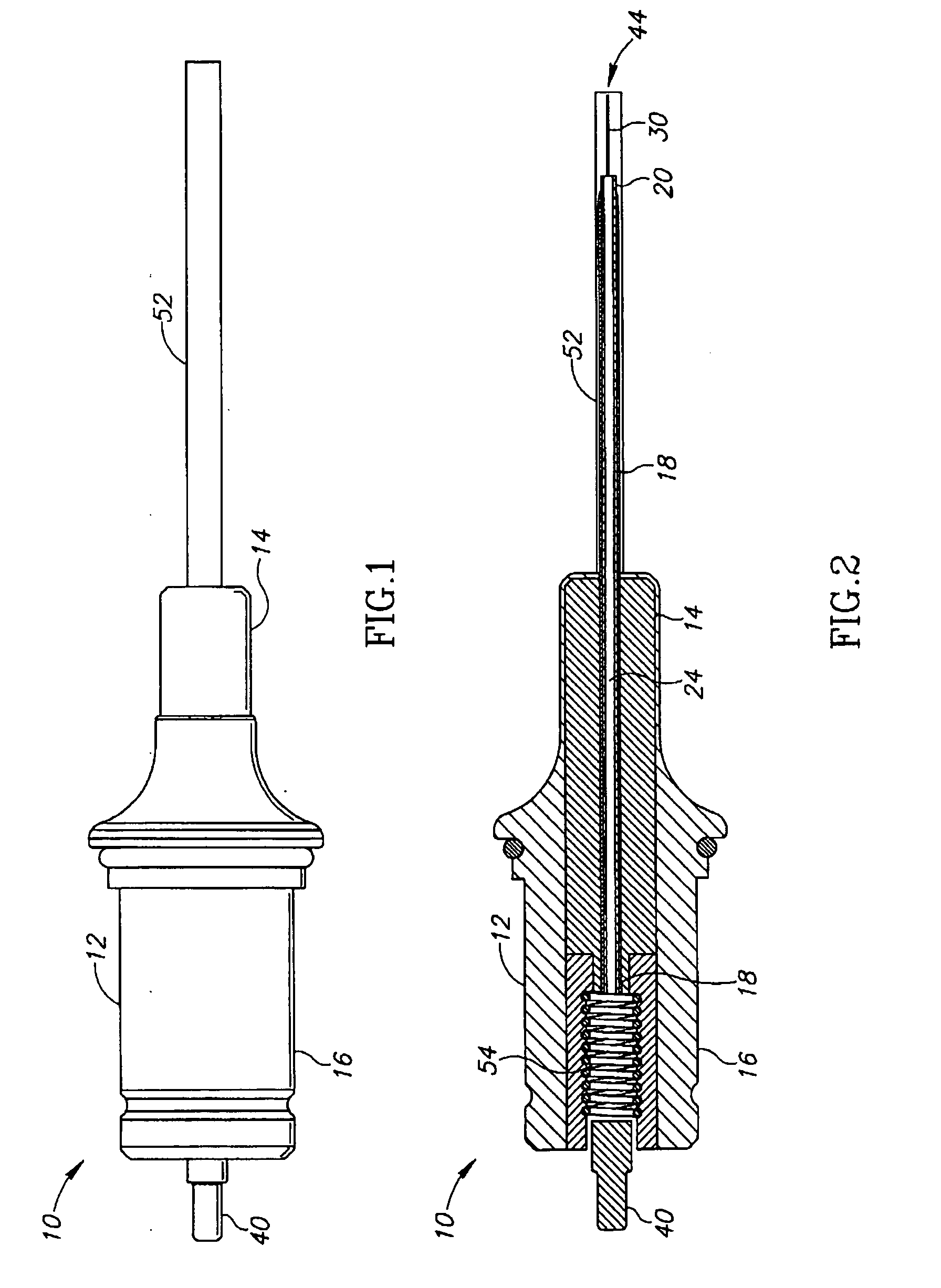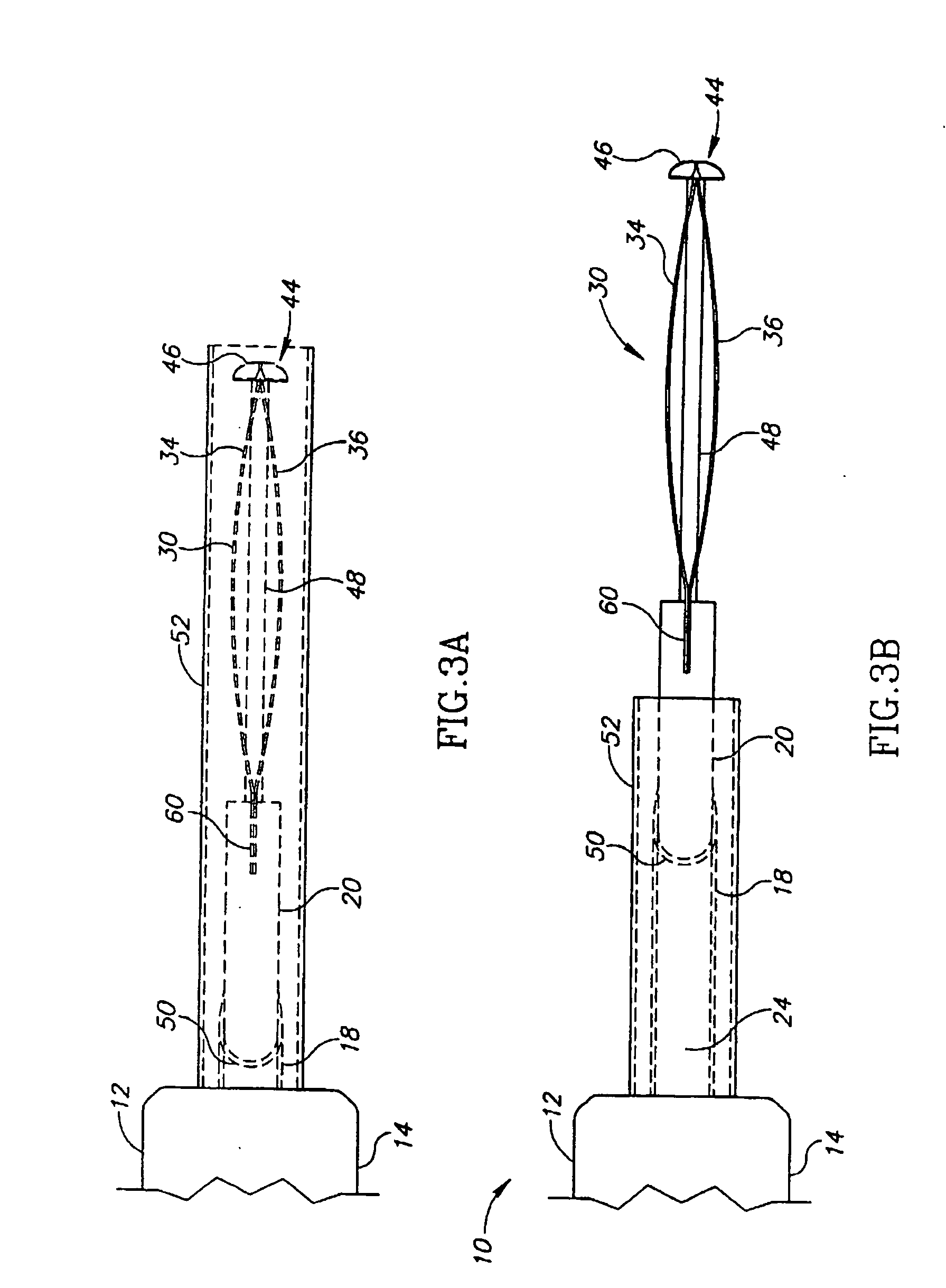Thermal capsulotomy tool and system
a capsulotomy and tool technology, applied in the field of catheter surgery, can solve the problems of increased likelihood of vitreous entry into the anterior chamber, loss of structural stability of the capsule, and difficulty in controlling the procedure of surgeons
- Summary
- Abstract
- Description
- Claims
- Application Information
AI Technical Summary
Benefits of technology
Problems solved by technology
Method used
Image
Examples
Embodiment Construction
[0053]The present invention discloses a capsulotomy tool, which has a retractable cautery ring, also known as a burning element. The burning element is initially hidden within a sleeve. After the tool is inserted past the capsular incision, the burning element is progressively extended from within the sleeve by sliding outwards several concentrically arranged tubes with which the element is associated. Finally, the burning element is fully opened to expand into a complete circular or complete oval shaped cautery, which is then heated to sear the lens. The complete circular or oval-shaped searing thus eliminates the need for tearing by forceps, which is potentially dangerous and difficult to perform.
[0054]In the invention, heating is limited to the burning element, so there is no danger of searing inappropriate areas of the eye. The retractable nature of the burning element allows it to be introduced through a small capsular incision, yet provides burning on the lens at a diameter la...
PUM
 Login to View More
Login to View More Abstract
Description
Claims
Application Information
 Login to View More
Login to View More - R&D
- Intellectual Property
- Life Sciences
- Materials
- Tech Scout
- Unparalleled Data Quality
- Higher Quality Content
- 60% Fewer Hallucinations
Browse by: Latest US Patents, China's latest patents, Technical Efficacy Thesaurus, Application Domain, Technology Topic, Popular Technical Reports.
© 2025 PatSnap. All rights reserved.Legal|Privacy policy|Modern Slavery Act Transparency Statement|Sitemap|About US| Contact US: help@patsnap.com



